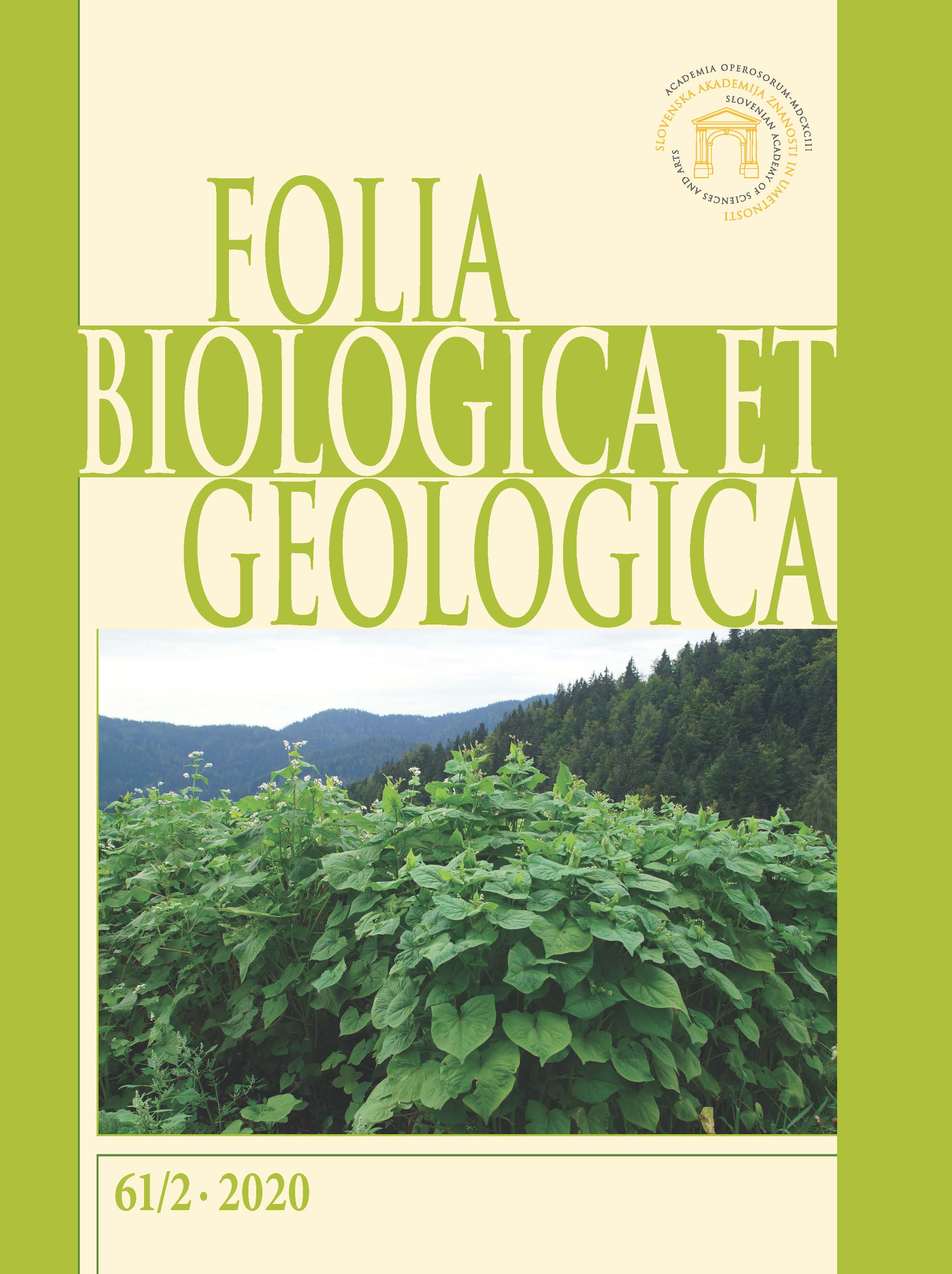Syntaxonomic problem of Illyrian (Dinaric) fir-beech forests (Abieti-Fagetum dinaricum (illyricum) s. lat.) / Sintaksonomski problem ilirskih (dinarskih) jelovo-bukovih gozdov (Abieti-Fagetum dinaricum (illyricum) s. lat.)
DOI:
https://doi.org/10.3986/fbg0077Abstract
For the analysis of the syntaxonomic problem of Illyrian fir-beech forests (Abieti-Fagetum dinaricum (illyricum) s. lat.), we selected the most important authors or researchers of these forests in the Dinaric mountains of the Central Balkan Peninsula and Slovenia. These authors are Blečić, Fukarek, Glavač, I. Horvat, Pelcer, Puncer, Stefanović and Tregubov. The analysis revealed floristic and ecological similarities and differences of Illyrian fir-beech forests. They can be classified into a single association Rhamno fallaci-Fagetum.
Key words: Abieti-Fagetum s. lat. = Rhamno fallaci-Fagetum nom. nov., phytocoenology, Dinaric mountains, Balkan peninsular, Slovenia.
Izvleček
Za analizo sintaksonomskega problema ilirskih jelovo-bukovih gozdov (Abieti-Fagetum dinaricum (Ilyricum) s. lat.) smo izbrali najpomembnejše avtorje oz. raziskovalce teh gozdov v dinarskem gorstvu osrednjega Balkanskega polotoka in Slovenije. Ti avtorji so Blečić, Fukarek, Glavač, I. Horvat, Pelcer, Puncer, Stefanović in Tregubov. Analiza je pokazala floristične in ekološke podobnosti in različnosti ilirskih jelovo-bukovih gozdov. Mogoče jih je uvrstiti v enotno združbo Rhamno fallaci-Fagetum.
Ključne besede: Abieti-Fagetum s. lat. = Rhamno fallaci-Fagetum nom. nov., fitocenologija, Dinaridi, Balkanski polotok, Slovenija
Downloads
Published
Issue
Section
License
Copyright (c) 2020 Folia biologica et geologica

This work is licensed under a Creative Commons Attribution-ShareAlike 4.0 International License.





